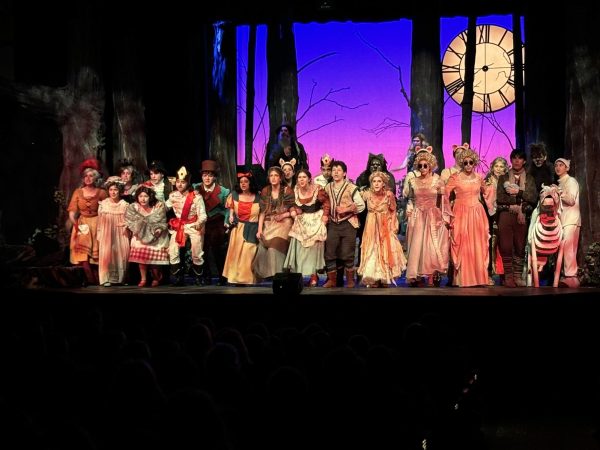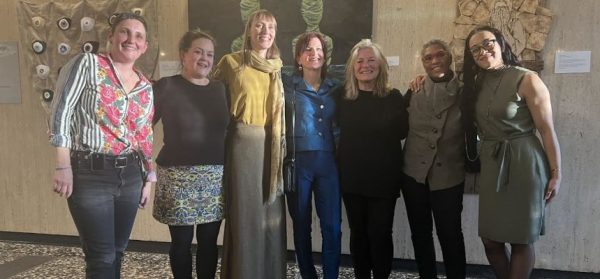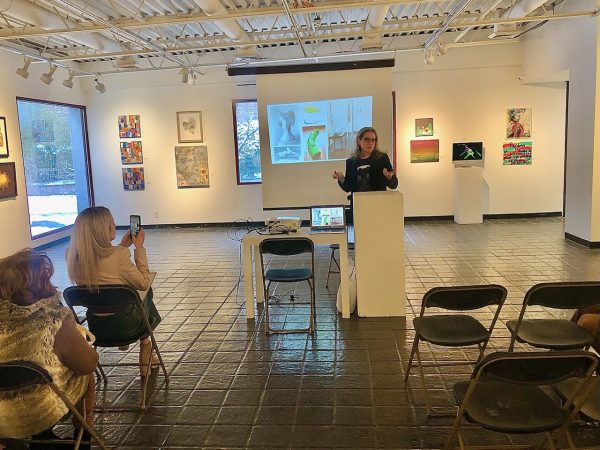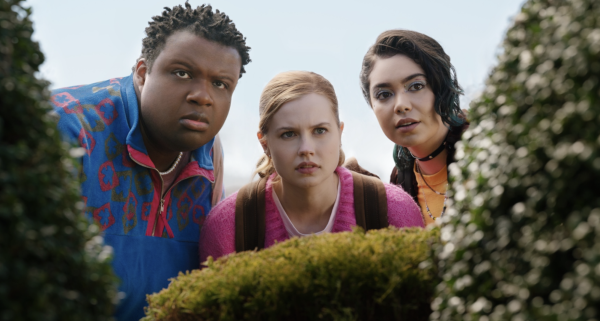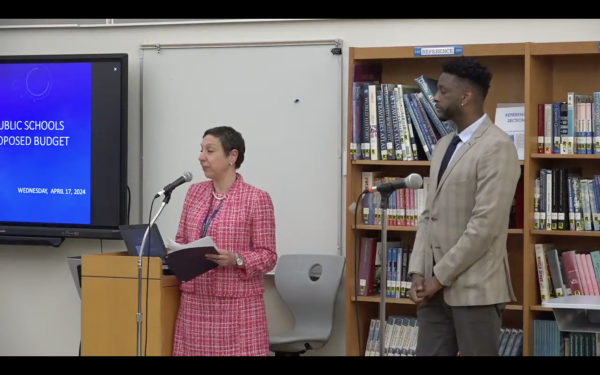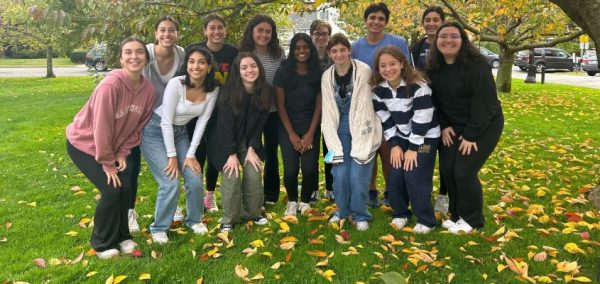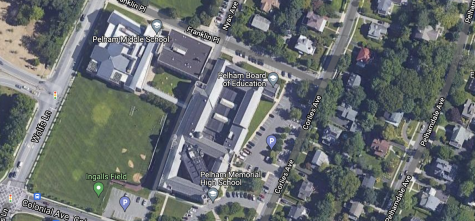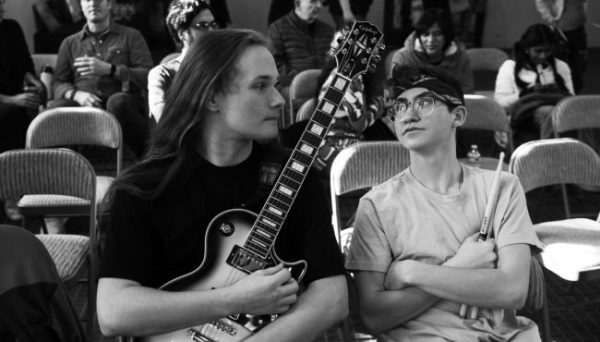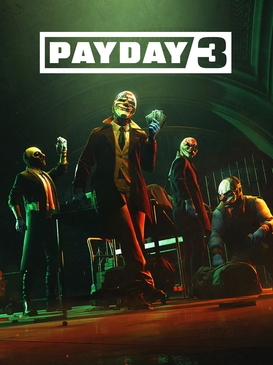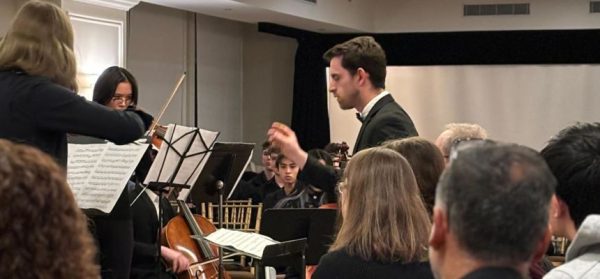‘Widows’ tells a compelling story, but struggles to sort out its thematic ideas
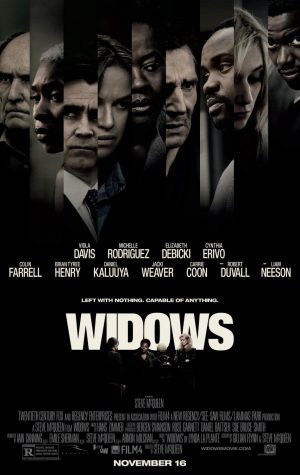 The first 3 minutes of “Widows” are some of the most gripping moments in 2018’s roster of films. In 3 minutes, “Widows” establishes the basic diving board for the rest of the story, along with the relationships our protagonists have with their spouses. It is an incredible sequence of flashbacks and flashforwards that the audience will be hard pressed to forget. However, despite this amazing opening, incredible performances, and gripping story, “Widows” has problems sorting out what it wants to say thematically, which unfortunately does bring down the rest of this otherwise wonderfully acted and beautifully made movie.
The first 3 minutes of “Widows” are some of the most gripping moments in 2018’s roster of films. In 3 minutes, “Widows” establishes the basic diving board for the rest of the story, along with the relationships our protagonists have with their spouses. It is an incredible sequence of flashbacks and flashforwards that the audience will be hard pressed to forget. However, despite this amazing opening, incredible performances, and gripping story, “Widows” has problems sorting out what it wants to say thematically, which unfortunately does bring down the rest of this otherwise wonderfully acted and beautifully made movie.
“Widows” follows Veronica Rawlins (Viola Davis), the wife of known robber and heist coordinator Harry Rawlins (Liam Neeson), in the fallout of the death of Harry and his entire crew after their latest robbery. Veronica soon learns that Harry stole 2 million dollars from a corrupt candidate for Chicago alderman, Jamal Mannings (Brian Tyree Henry), who is now demanding his money back, with her life as the price of failing to pay him back. Knowing that the botched heist will have left other widows as well, Veronica must find and organize them (Michelle Rodriguez and Elizabeth Debicki) and carry out a heist themselves, following plans that Harry left behind, all the while avoiding the spotlight brought on by the political race between the corrupt Mannings and front-runner, and also decently corrupt, Jack Mulligan (Colin Farrell).
The part of the story that follows the actual widows is great. We watch as each of the protagonists (Davis, Rodriguez and Debicki) must deal with the fallout of the deaths of their husbands, each with a radically different relationship to their deceased spouse. Each of them is quite different and unique, providing for interesting dynamics between each of them. The film is a slow burn of them growing and strengthening themselves to a point where they can carry out a heist. This section works because it focuses on watching these characters grow, change and form bonds that rely only on a shared sympathy for each other, that now must rival bonds of men who have worked together for years in order to be successful. (However, it should be noted, that the heist itself is not the focus of this movie. If one goes in expecting an “Oceans” style heist film, they will most likely be disappointed.)
Where this movie falters, is in the political storyline. Intercut throughout the heist prep scenes, we see both candidates of a political election pulling necessary strings to attempt to win. Jack Mulligan (Colin Farrell) comes from a line of men who have all served in politics before him. He, unlike his father Thomas (Robert Duvall) actually does want to help the working man and minority groups, but ultimately doesn’t feel he actually wants to be in politics. Jamal Mannings (Brian Tyree Henry) on the other hand, also seems to genuinely want to help the poor and struggling of the city, but comes from a life of crime, and is not afraid to indulge in it in order to win, shown through his violent enforcer and right hand man, Jatemme (portrayed ruthlessly by “Get Out’s” Daniel Kaluuya.) The problem with this storyline is that both candidates don’t feel “good”, but the movie feels like it wants the audience to support one of them, but leaves it vague as to which one. Here, it feels as if there should be a present theme. But there just isn’t a clear one. If the idea is that all politicians are problematic in some way, that’s fine, but the movie spends so much time with each of the candidates and their inner workings that it feels like it wants to say more than that. The movie offers up a problem but no clear thematic solution, and unfortunately, these scenes are so prevalent that it brings down the movie as a whole. That’s not to say these scenes are bad, in fact they’re quite well acted and well written, they just don’t blend all too well with the other story.
On the topic of these performances, it is hard to find fault with any of them in this ensemble cast of talented actors and actresses. Viola Davis does some of her best recent work as Veronica Rawlins. She manages to balance the overwhelming grief of the loss of her husband with the need to be strong in the face of adversity in a brilliant way, portraying a pillar of strength that still shows a very human vulnerability. Michelle Rodriguez and Elizabeth Debicki do likewise, Rodriguez as the frustrated Linda, and Debicki really shines as Alice, a woman overcoming the submissiveness that was brought on by her abusive husband and manipulative mother. Shown semi-frequently in flashbacks, Liam Neeson also does great work as Harry Rawlins, the criminal/devoted husband who may have a few more skeletons in his closet than his wife had previously believed. Despite problems with the political storyline, the performances are still enjoyable here too. Colin Farrell (doing a very fun Chicago accent) and Brian Tyree Henry are great corrupted politicians, with Robert Duvall doing great as a very easy to hate retiring politician. However, it is Daniel Kaluuya, who takes the cake, indulging in every evil, brutal and unremorseful action he performs. It is a nice change from his sympathetic and likeable performance in “Get-out”, but a welcome one.
One final note to discuss, is the cinematography, which is a bit of a double edged sword. It is masterful, that can’t be denied, but “Widows” is a “film-connoisseurs” movie, for lack of a better word. Director Steve McQueen really indulges in Hitchcock-esque artistic shots, that some may absolutely love, but some may hate. (I personally really enjoyed the nature of it, but some of the company I viewed “Widows” with felt it was pretentious and over-indulgent.) Neither interpretation are right or wrong, it really just depends on how you feel, which may ultimately decide the fate of this movie’s rating for you.
“Widows” tells a compelling story, with some bumps along the way thematically. The performances are near impeccable, but the jarring tonal shifts in the political storyline and the indulgent camera work may may be frustrating to some. However, as a self proclaimed “passion project” by director Steve McQueen, it is overall a unique film, one worth seeing to decide for yourself.
Sam Rodd is a senior at Pelham Memorial High School and a lover of theater, music and movies. He spends most of his time rehearsing in musicals and plays....



